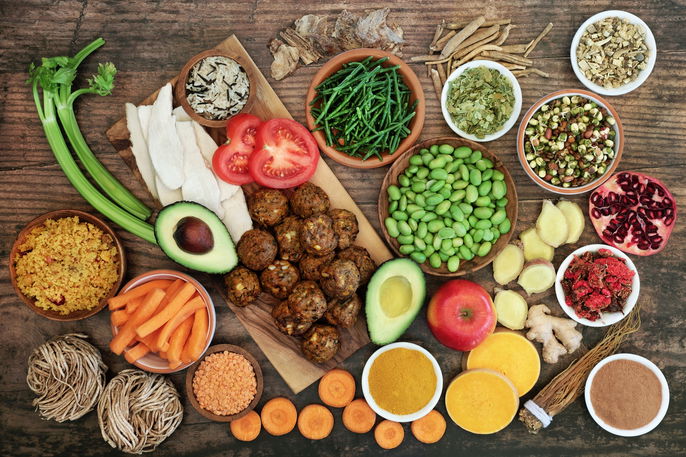Maintaining a 1500 calorie meal plan is a type of restrictive dietary approach that can be used to achieve weight loss. This type of diet decreases the amount of calories consumed daily, causing the body to use its fat stores as a source of energy, resulting in weight loss.
In addition to decreasing daily calories, it is important to eat small, frequent meals (5 or 6) throughout the day with a focus on healthy foods.
Make sure to talk to a registered dietitian before starting this or any type of diet. It is important to develop a personalized diet that will prevent vitamin and mineral deficiencies that could negatively impact health and well being.

Diet instructions
A 1500 calorie meal plan involves 5 or 6 small meals spread out over the course of a day that prioritize healthy foods like fresh fruits and vegetables, legumes, lean protein, healthy fats, whole grain cereals, and root vegetables.
It is important to drink at least 50 ounces (1.5 liters) of water a day, which can include unsweetened teas, in order to hydrate the body and control hunger. Drinking water can help the body to not confuse hunger with thirst, promoting a feeling of satiety and helping to control appetite.
In addition, it is recommended to practice regular physical exercise, such as weight training, swimming, running, or dancing, at least 3 times per week to accelerate the metabolism and help with weight loss.
Also recommended: 15 Best Exercises to Lose Weight (with Calories Burned) tuasaude.com/en/best-exercises-to-lose-weightWhat to eat
When following a 1500 calorie meal plan it is important to prioritize low calorie foods that keep you feeling full. These include:
- Fresh fruits, like strawberries, peaches, pears, melon, apples, kiwi, bananas, tangerines, lemons, blackberries, watermelon, grapes, cherries, passion fruit, and oranges;
- Fresh vegetables, like lettuce, tomato, green beans, cucumbers, arugula, spinach, chard, watercress, broccoli, cauliflower, zucchini, and eggplant;
- Healthy fats, like olive oil, avocado, coconut oil, avocado oil, Chia seeds, flaxseed, and squash;
- Lean protein, like fish, seafood, chicken, eggs, tofu, and lean cuts of beef such as shank, knuckle, and rump steak;
- Legumes, like beans, soy, chickpeas, lentils, and split peas;
- Whole grains, like brown rice, whole grain bread, whole wheat pasta, and corn.
In addition, spices like cinnamon, pepper, and turmeric, and natural teas such as green tea, yerba mate, black tea, and hibiscus tea, are great options to include in your diet, as they are low in calories and contain thermogenic properties that accelerate metabolism and contribute to more rapid weight loss.
Meal plan
The following table contains a sample 3-day 1500 calorie meal plan:
This is only one example of a 1500 calorie meal plan and can be modified based on factors like age, health conditions, and energy expenditure. It is recommended to consult a registered dietitian to develop a more personalized meal plan based on your specific nutritional needs.
This meal plan provides the number of calories for each meal. Meals can be swapped, added, or removed based on your daily calorie goals. They can also be incorporated into meal plans for diets with different caloric restrictions (less than or greater than 1500).
Also recommended: Does Drinking Water Help You Lose Weight? tuasaude.com/en/does-drinking-water-help-you-lose-weightFoods to avoid
In order to avoid excess calories, it is recommended to avoid high-calorie foods and foods that can stimulate appetite, including:
- Processed foods, such as packaged cookies, sodas, nuggets, ready-made sauces and marinades, and fast food;
- Foods high in fat, like fried foods, pizza, chips, and hamburgers;
- Smoked meats, like hot dogs, linguiça, cold cuts, and mortadella;
- Sugar, found in foods like ice cream, cakes, candy, and chocolate;
- Refined grains, like white rice, white bread, and pasta.
It is important to avoid drinking alcohol, such as beer, wine, and sparkling wine, as these drinks are high in calories, making it difficult to lose weight.






























